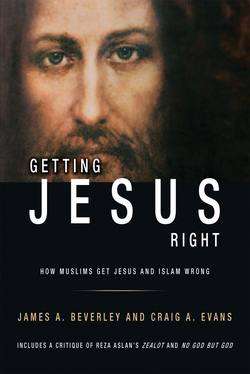Читать книгу Getting Jesus Right: How Muslims Get Jesus and Islam Wrong - James A Beverley - Страница 37
На сайте Литреса книга снята с продажи.
Examples of Zeal in the Intertestamental Period
ОглавлениеThe zeal of Phinehas, dramatically witnessed in the incident near Peor during Israel’s wanderings in the wilderness, resulted in an almost iconic status for this priest. One of the oldest post-Old Testament testimonies is found in Sirach, who lauds Phinehas in his Praise for Famous Men (Sir 44–51). In his praise of Phinehas, one hears echoes of Numbers 25 and Psalm 106:
Phinehas the son of Eleazar is the third in glory,
for he was zealous in the fear of the Lord,
and stood fast, when the people turned away,
in the ready goodness of his soul, and made atonement for Israel.
Therefore a covenant of peace was established with him,
that he should be leader of the sanctuary and of his people,
that he and his descendants should have
the dignity of the priesthood for ever. (Sir 45:23–24)
Joshua ben Sira (Greek: “Jesus the son of Sirach”) composed his work in Hebrew sometime around 180 BC. About 50 years later, his grandson prefaced it and translated it into Greek. Phinehas appears in exalted company indeed, preceded by Moses (vv. 1–5) and Aaron (vv. 6–22) and followed by David (vv. 25–26). The appearance of David is chronologically out of sequence, for Joshua the son of Nun, successor to Moses, will make his appearance in Sir 46:1–12. Mention of David is brought forward because he too was honored with a covenant. A covenant of peace and priesthood was established with Phinehas, and a covenant of kingship was established with David. The coupling of Phinehas with David, each blessed with a covenant, one priestly and the other kingly, is highly significant, testifying to the dyarchic nature of Israel’s ordained leadership.
In 1 Maccabees the zealous actions of Mattathias, father of Judas Maccabeus and his brothers, are compared to the zeal and violence of Phinehas:
When Mattathias saw it, he burned with zeal and his heart was stirred. He gave vent to righteous anger; he ran and killed him upon the altar. At the same time he killed the king’s officer who was forcing them to sacrifice, and he tore down the altar. Thus he burned with zeal for the law, as Phinehas did against Zimri the son of Salu. Then Mattathias cried out in the city with a loud voice, saying: “Let every one who is zealous for the law and supports the covenant come out with me!” (1 Macc 2:24–27)
Phinehas is again mentioned by name in Mattathias’s farewell to his sons, a farewell modeled after Jacob’s farewell to his sons in Genesis 49, which gave rise to a genre that became very popular in the intertestamental and New Testament periods. Here is part of Mattathias’s farewell:
Now, my children, show zeal for the law, and give your lives for the covenant of our fathers. Remember the deeds of the fathers, which they did in their generations; and receive great honor and an everlasting name…Phinehas our father, because he was deeply zealous, received the covenant of everlasting priesthood…Elijah because of great zeal for the law was taken up into heaven. (1 Macc 2:50–51, 54, 58)
Zeal for the Law is the theme that runs throughout this farewell testament. Once again we find Phinehas in illustrious company. The author of 1 Maccabees, a book composed sometime around 100 BC, cites the examples of Abraham, Joseph, Joshua, Caleb, David, Elijah, Daniel and the three faithful young men in Daniel 3 (1 Macc 2:52–60). Mattathias is a priest (1 Macc 2:1) and can find no better example of priestly zeal than that of Phinehas, grandson of Aaron.
Philo of Alexandria (c. 20 BC—AD 50) speaks approvingly of the zeal of Phinehas. In one place he says, “But Phineas the priest, who was zealous with a great zeal for God’s service, did not provide for his own safety by flight” (Allegorical Interpretation 3.242). No, the priest did not flee; he struck down the wicked. In another place Philo says that “warlike reason” is called Phinehas, the priest who had “received a zeal for virtue” (Confusion 57). In recounting Israel’s history, Josephus mentions Phinehas, stating that the priest “surpassed his contemporaries in the dignity of his father,” the son of Aaron, brother of Moses (Antiquities 4.152; see also 5.104, where Phinehas is numbered among the men held “in esteem among the Hebrews”).
In summary, we have four major texts in which the zeal of Phinehas is underscored: two in the Old Testament and two in important intertestamental literature. In Numbers 25, we hear of the priest’s zeal, a promised covenant of peace and an eternal priesthood. In Psalm 106, we hear of his zeal, his action being reckoned to him as righteousness, and “from generation to generation,” which may allude to the promise of perpetual priesthood. In Sirach 45, we hear of zeal, the covenant of peace and an eternal priesthood. And in 1 Maccabees 2, we read of zeal and everlasting priesthood.
